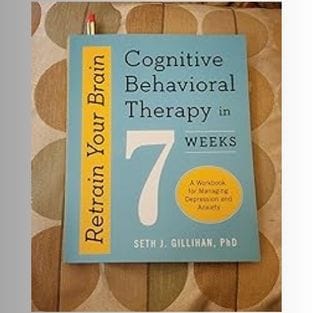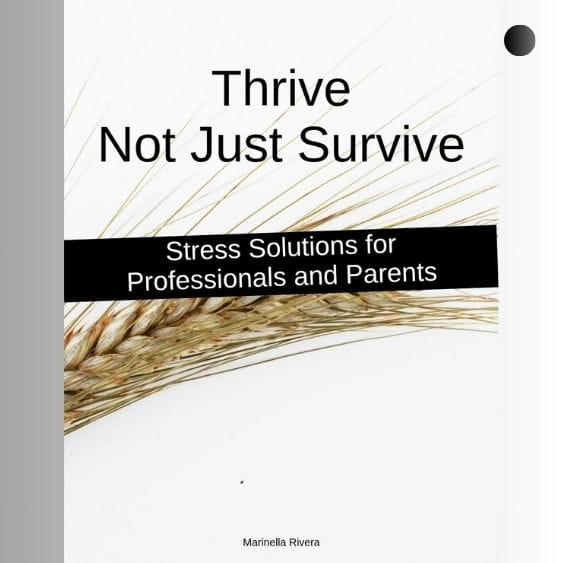Key Takeaways:
- Understanding the Root Causes of Worry: Identifying what triggers your anxiety is the first step to overcoming it.
- Practical Techniques to Manage Worry: Implementing proven strategies can significantly reduce your stress levels.
- Adopting a Positive Mindset: Shifting your perspective can transform your approach to life's challenges.
1. Understanding the Root Causes of Worry
Worry often stems from uncertainty and fear of the unknown ... When we don't have control over a situation, our minds tend to spiral into worst-case scenarios.
- For instance, worrying about job security or health issues can consume our thoughts, leading to sleepless nights and constant anxiety. Recognizing these triggers is crucial in addressing the root causes of worry.
Another significant factor is past experiences ... Negative events from our past can shape our current mindset, making us more prone to worry.
- For example, someone who has faced financial difficulties may constantly worry about money, even when their situation has improved. By understanding these underlying causes, we can begin to address and manage our worries more effectively.
2. The Power of Positive Thinking
Positive thinking is a powerful tool in combating worry ... By focusing on the positive aspects of a situation, we can shift our mindset and reduce anxiety.
- For instance, instead of worrying about a presentation at work, focus on the opportunity to showcase your skills and knowledge. This shift in perspective can make a significant difference in how we approach challenges.
- Moreover, surrounding yourself with positive influences can also help. Engaging with supportive friends and family, reading uplifting books, or listening to motivational podcasts can reinforce a positive mindset.
*By consistently practicing positive thinking, we can train our minds to focus on the good, reducing the impact of worry on our lives.
3. Practical Techniques to Manage Worry
One effective technique to manage worry is mindfulness meditation ... This practice involves focusing on the present moment and letting go of negative thoughts.
- By dedicating just a few minutes each day to mindfulness, you can significantly reduce stress and anxiety. Apps like Headspace and Calm offer guided meditations that can help you get started.

Another practical method is journaling ... Writing down your worries can help you process and understand them better.
- By putting your thoughts on paper, you can gain clarity and perspective, making it easier to address the root causes of your anxiety.
- Additionally, journaling can serve as a therapeutic outlet, allowing you to release pent-up emotions and reduce stress.
4. The Role of Physical Activity
Physical activity is a natural stress reliever ... Engaging in regular exercise can help reduce anxiety and improve your overall well-being.
- Activities like walking, running, or yoga can release endorphins, which are natural mood lifters. For example, a daily 30-minute walk can significantly reduce stress levels and improve your mood.

- Moreover, physical activity can serve as a distraction from your worries. When you're focused on a workout, your mind is less likely to dwell on negative thoughts.
*This break from worrying can provide much-needed relief and help you approach challenges with a clearer mind.
**Incorporating regular exercise into your routine can be a powerful tool in managing worry.
5. The Importance of a Support System
Having a strong support system is essential in managing worry ... Friends, family, and even professional counselors can provide valuable perspectives and advice.
- For instance, talking to a trusted friend about your worries can help you see the situation from a different angle, making it easier to find solutions.
- Additionally, support groups can offer a sense of community and understanding. Sharing your experiences with others who are going through similar challenges can be incredibly comforting.
*Knowing that you're not alone in your struggles can reduce feelings of isolation and provide the encouragement needed to overcome worry.
6. Setting Realistic Goals
Setting realistic goals can help manage worry by providing a clear path forward. When you have a plan in place, it's easier to focus on actionable steps rather than getting overwhelmed by the bigger picture.
- For example, if you're worried about a work project, break it down into smaller, manageable tasks. This approach can make the project feel less daunting and more achievable.
- Moreover, celebrating small victories along the way can boost your confidence and reduce anxiety. Each completed task is a step closer to your goal, reinforcing a sense of progress and accomplishment.
*By setting realistic goals and acknowledging your achievements, you can keep worry at bay and maintain a positive outlook.
7. The Benefits of a Healthy Lifestyle
A healthy lifestyle can significantly impact your ability to manage worry ... Proper nutrition, adequate sleep, and hydration are fundamental to maintaining mental and physical health.
- For instance, a balanced diet rich in fruits, vegetables, and whole grains can provide the nutrients needed to support brain function and reduce stress.

- Additionally, avoiding excessive caffeine and alcohol can help regulate your mood and energy levels. These substances can exacerbate anxiety and disrupt sleep, making it harder to manage worry.
*By prioritizing a healthy lifestyle, you can create a strong foundation for mental resilience and overall well-being.
8. The Impact of Time Management
Effective time management can reduce worry by helping you stay organized and focused ... When you have a clear schedule, it's easier to prioritize tasks and avoid feeling overwhelmed.
- For example, using a planner or digital calendar can help you keep track of deadlines and appointments, ensuring that nothing falls through the cracks.
- Moreover, allocating specific times for relaxation and self-care is crucial. Taking regular breaks and allowing yourself time to unwind can prevent burnout and reduce stress.
*By managing your time effectively, you can maintain a healthy balance between work and personal life, minimizing worry and enhancing productivity.
9. Embracing Change and Uncertainty
Embracing change and uncertainty is essential in managing worry ... Life is unpredictable, and learning to adapt can reduce anxiety.
- For instance, instead of fearing the unknown, view it as an opportunity for growth and new experiences. This mindset shift can help you approach challenges with curiosity and resilience.
- Additionally, practicing flexibility can make it easier to navigate unexpected changes. Being open to new possibilities and willing to adjust your plans can reduce stress and increase your ability to cope with uncertainty.
*By embracing change and uncertainty, you can build mental strength and reduce the impact of worry on your life.
10. Seeking Professional Help
Sometimes, managing worry requires professional help ... Therapists and counselors can provide valuable tools and strategies to address anxiety.
- For example, cognitive-behavioral therapy (CBT) is a proven method for changing negative thought patterns and reducing worry. A trained professional can guide you through this process, helping you develop healthier coping mechanisms.
Here's a good read-or-listen resource that could be of help ...

- Moreover, medication may be necessary for some individuals. If worry is significantly impacting your daily life, a healthcare provider can assess your situation and recommend appropriate treatment options.
*Seeking professional help is a proactive step in managing worry and improving your overall well-being.
FAQ
Q: How can I identify the root causes of my worry?
A: Identifying the root causes of worry involves self-reflection and awareness ... Pay attention to the situations or thoughts that trigger your anxiety.
Keeping a journal can help you track patterns and gain insights into the underlying causes of your worry.
Q: What are some quick techniques to reduce worry in the moment?
A: Quick techniques to reduce worry include deep breathing exercises, mindfulness meditation, and physical activity.
These methods can help calm your mind and provide immediate relief from anxiety.
Q: When should I seek professional help for my worry?
A: If worry is significantly impacting your daily life and you find it difficult to manage on your own, it may be time to seek professional help ... A therapist or counselor can provide valuable tools and strategies to address your anxiety and improve your overall well-being.
The Takeaway
Worrying is a common experience, but it doesn't have to control your life.
- By understanding the root causes, adopting a positive mindset, and implementing practical techniques, you can significantly reduce anxiety.
- Physical activity, a strong support system, and a healthy lifestyle are also crucial in managing worry.
- Effective time management, embracing change, and seeking professional help when needed can further enhance your ability to cope with stress.
*Remember, it's possible to stop worrying and start living a more fulfilling life.
Disclaimer. When you purchase through links on our site, we may earn an affiliate commission (that's how we stay in business). FirstFewFinds may use affiliate links to products and services on retailer sites for which we can receive compensation if you click on those links or make purchases through them. We hope you find the list of our first few finds useful and helpful. Each product on our list has been carefully chosen by our writers and all opinions are our own. Check your choices and enjoy finding exactly what you need!








